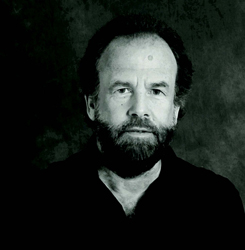“We’re four misfits who don’t belong together but sing to the other misfits.”
This is how lead singer Freddie Mercury defines Queen in Bohemian Rhapsody.
It’s a humble definition given the global success of the band, and the prominent influence they have had in so many people’s lives.
Bohemian Rhapsody shows another side of the globalized rock sensation, from Mercury’s sexual discoveries to his relationship with family; the man who sang in tight white pants and sported a theatrical mustache becomes just like the rest of us.
You sometimes wonder if someone as daring and bold as Mercury is just born that way.
Played with great vigor by Rami Malek, Mercury is a quirky, confident guy with dreams of grandeur that nobody seems to take seriously, not even his family.
After displaying his gritty and soulful vocals for his future bandmates after their original lead singer quits, it seems as if Queen was brought together by great timing and pure coincidence.
Mercury struggles with his own demons, such as his need to always be the life of the party, causing him to push many people away and destined to be a party of one.
Filled with relationship turmoil and a historically memorable musical score from the band, the film captures Mercury in his darkest and triumphant moments.
Malek had his time in the sun with this film, and his rock and roll persona was captivating.
When Malek performed as Mercury, he became the icon.
Dressed from head to toe in sequined pantsuits or flared blue jeans, Malek didn’t just wear the clothes for the time, he became one with them.
From the swing in his walk to the purse of his lips when he was deep in thought, Malek embodied his character with great dedication.
While the film does revolve around the life of Mercury, it’s difficult to talk about the singer without mentioning his bandmates who gave us the electric instrumentals and some of the most memorable lyrics.
The chemistry between Freddie and his bandmates is displayed throughout.
From the comical scenes where the band is trying to nail the piercing “Galileo” in “Bohemian Rhapsody,” to Roger Taylor, played by Ben Hardy, telling Freddie that he looked like a lizard in his attire for a serious band meeting, the group replicates the comradeship that drew many to Queen.
But like most bands with a captivating frontman, there’s always an arrogance that develops, and this was no different with Mercury and Queen.When the band gained more popularity across the world, tensions started to build and ideas began to clash.
As Mercury’s ego began to inflate, he dared to say, “Queen is whatever I say it is,” causing his bandmates to push him away.
The on-screen chemistry between Mercury and his long-time love interest Mary Austin, played by Lucy Boynton, was spectacular.
The pair went through great changes together, from Austin working in a clothing boutique and Mercury singing in a student-band that was unprepared for the rollercoaster ahead, to unparalleled stardom overnight.
Austin played a huge role not only in the film, but in Mercury’s life.
He wrote the song “Love Of My Life” about her and when thousands were chanting the lyrics at one of his shows, Mercury told her that they were “singing to her.”
Even though Mercury and Austin were not romantically involved for the long-haul, they were always each other’s soulmate.
Costume designer Julian Day does a magnificent job of piecing together staple clothing items from the 1970’s to the 1990’s, showing Mercury’s style evolution throughout the years.
The 70’s were a time for bell-bottom jeans and suede jackets. Mercury’s hair was shaggy as he sported a choppy micro-fringe that brushed above his dark eyebrows.
Day places the audience into these eras filled with distinct fashions that shaped the time.
Now, the film would not be titled Bohemian Rhapsody if the musical score wasn’t chock full of every Queen hit known to man.
The band’s greatest hits, such as “Bohemian Rhapsody,” “Another One Bites the Dust,” “Radio Ga Ga,” “I Want To Break Free,” and “We Are The Champions” are performed.
A unique aspect of Bohemian Rhapsody is the breakdown of how the hits were conspired among the band members.
Scenes such as lead guitarist Brian May, played by Gwilym Lee, creating the stomp-clamp sequence for anthem “We Will Rock You” while Mercury is running late for the band meeting, to Mercury laying in bed with Austin and dreamily playing a melody that sounds an awful lot like the piano in “Bohemian Rhapsody” (spoiler alert, it was) emphasized the realities of how a band creates these chart-topping hits.
Mercury was diagnosed with AIDS towards the end of his life and was painfully aware that he was running out of time.
I enjoyed how the film centered around the joyous moments in Mercury’s life along with his moments where he was not his strongest.
If only there was a larger portion of the film spent on his early life, because some aspects of Mercury’s relationship with his parents could have used more camera time.
Despite his talent and magnificence as a performer, Mercury was a human being who experienced heartbreak and times of pure despair.
Mercury was an icon because he held no shame in his humanity and embraced every single part of himself unapologetically, which we should all strive for.
As Mercury states in the film, “You don’t know me, you just see what you want to see.”
If you appreciate the musical stylings of Queen, you will find great pleasure in watching the memorable story unfold behind the big screen.
This film brings together a variety of age-groups to the cinema to relive the experience of rock and roll history being made, which was long overdue.
PHOTO TAKEN from pmstudio.com



